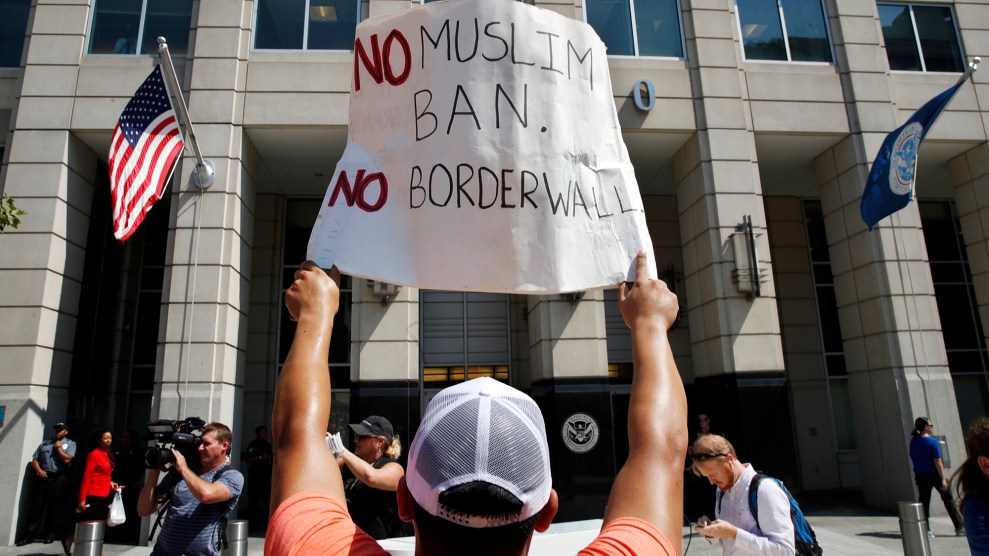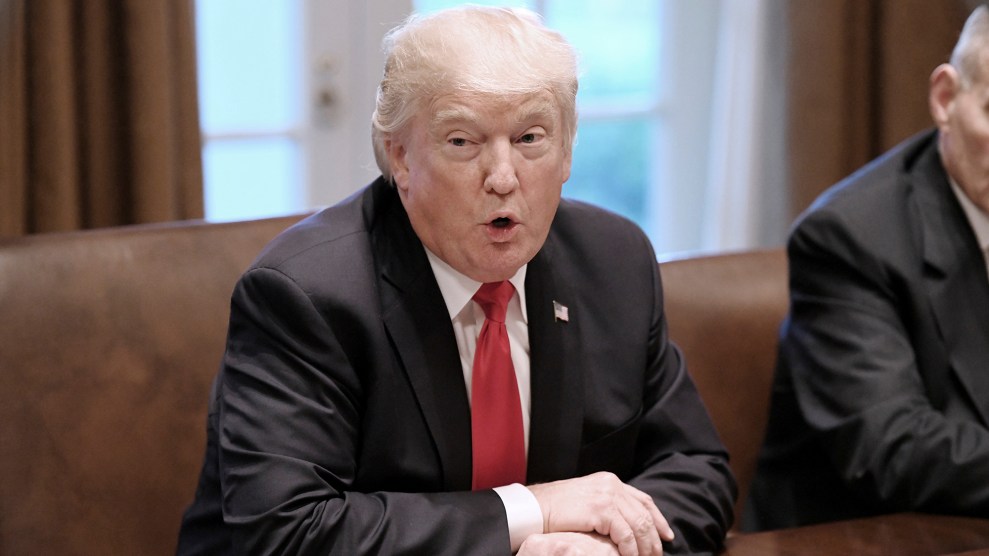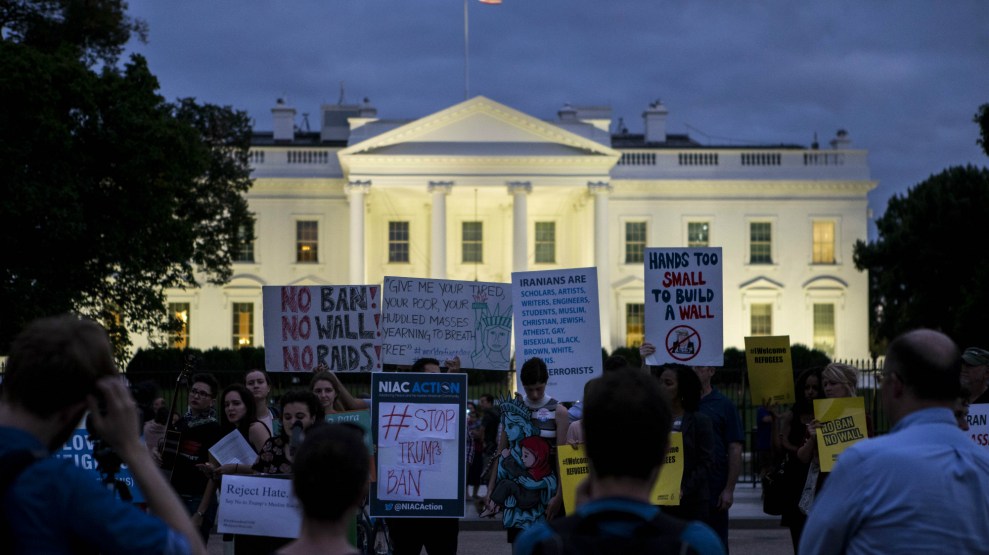
Jose Quinones, 22, of the Staten Island outside of Immigration and Customs Enforcement in Washington, Tuesday, Sept. 5, 2017. Jacquelyn Martin/AP
Update 10/18: A second federal judge, in Maryland, moved Wednesday to block President Donald Trump’s travel ban, a day after a federal judge in Hawaii took a similar action. The judge, Theodore D. Chuang, found that the president’s own words undercut his rationale for his third travel ban, writing that the latest ban in simply a “re-animation of the twice-enjoined Muslim ban.”
A federal judge in Hawaii blocked the third iteration of President Donald Trump’s travel ban on Tuesday, one day before it was set to go into effect.
The latest version of the ban mirrored the first and second ones by blocking or restricting the ability of nationals of six Muslim-majority countries from entering the United States. The third ban had removed Sudan from the list of affected countries but added Chad, North Korea, and Venezuela.
Judge Derrick Watson began his opinion with a comparison of the federal government to professional athletes—an odd juxtaposition at a time when the president has picked a fight with black athletes protesting the treatment of people of color by the criminal justice system. “Professional athletes mirror the federal government in this respect: they operate within a set of rules, and when one among them forsakes those rules in favor of his own, problems ensue,” Watson wrote. “And so it goes with EO-3,” Trump’s third executive order.
In fighting the travel ban, the state of Hawaii and other plaintiffs have contended that the purpose of the order was to ban Muslims from entering the country, rather than a policy based on sincere national security concerns. Watson, in his order, relayed the plaintiffs’ argument that Trump has never renounced the call he issued on the campaign trail to ban Muslims from entering the country and that in the time since the court took up the second executive order, “the record has only gotten worse.” In a footnote, Watson cited a string of tweets by the president in June in which he called the second ban a “watered down, politically correct version” of his “original Travel Ban.”
Watson tore into the government’s defense of the travel ban. He argued that the government’s national security rationale for the executive order was not reflected in the order itself, calling it “simultaneously overbroad and underinclusive.” He also questioned the government’s national security justification, writing that “EO-3 contains internal incoherencies that markedly undermine its stated ‘national security’ rationale.”
While other rulings against Trump’s travel bans have focused on issues of constitutionality, Watson argued that the latest ban likely violated a specific law, the Immigration and Nationality Act, which governs the country’s immigration policies. Watson agreed with Hawaii and the other plaintiffs that by barring entry to people based on their nationality without providing sufficient justification, the ban likely ran afoul of the law.
Tuesday’s order is not a final ruling in the case; instead, it prevents the ban from taking effect until a final ruling is made or—more likely—an appeals court weighs in. The Trump administration is likely to appeal the decision to the Ninth Circuit Court of Appeals, and from there it could head to the Supreme Court.
Read the full opinion:


















